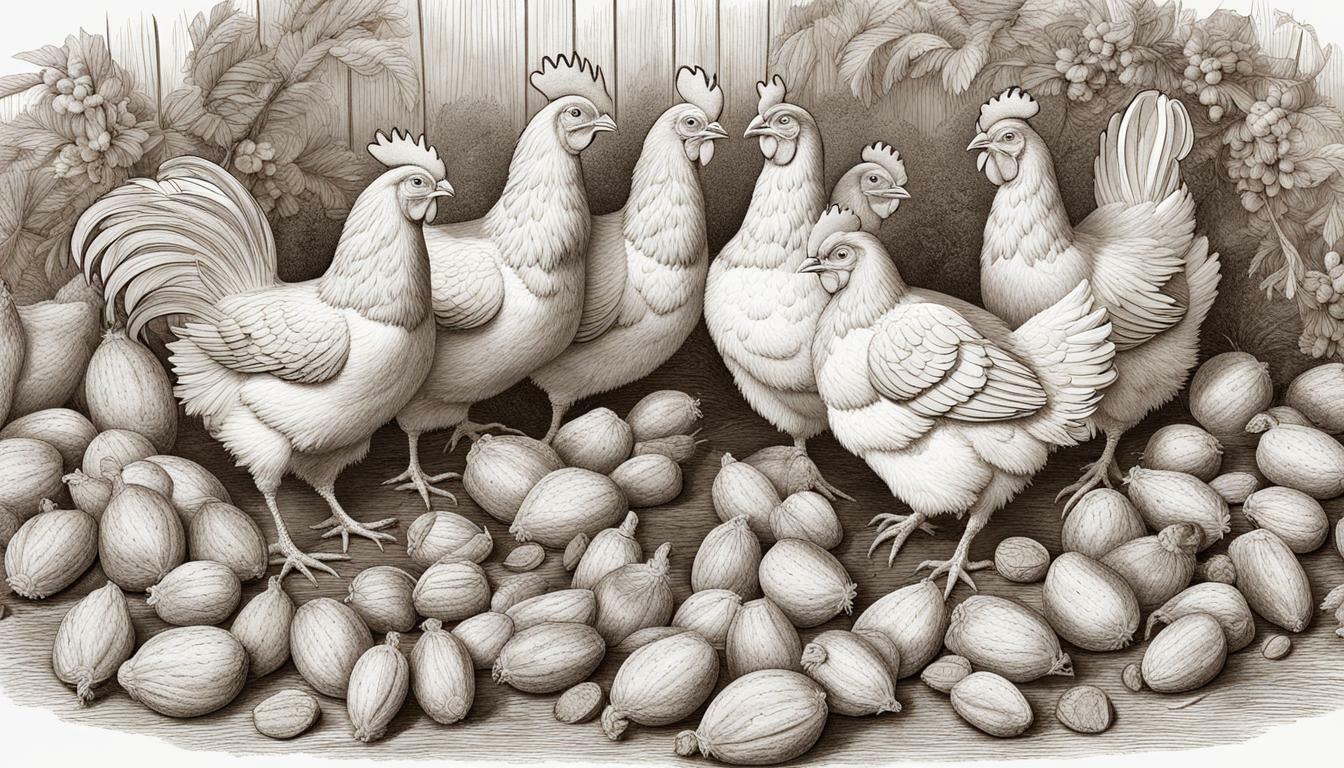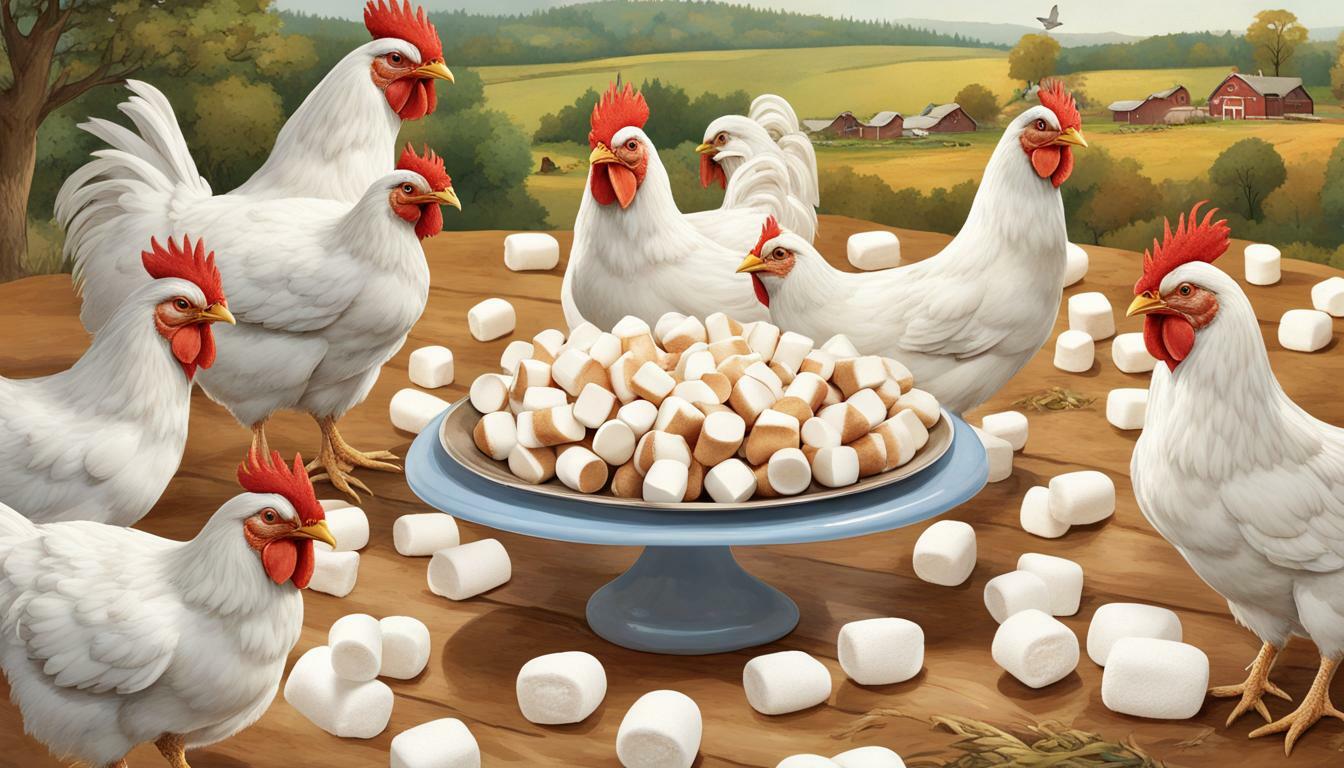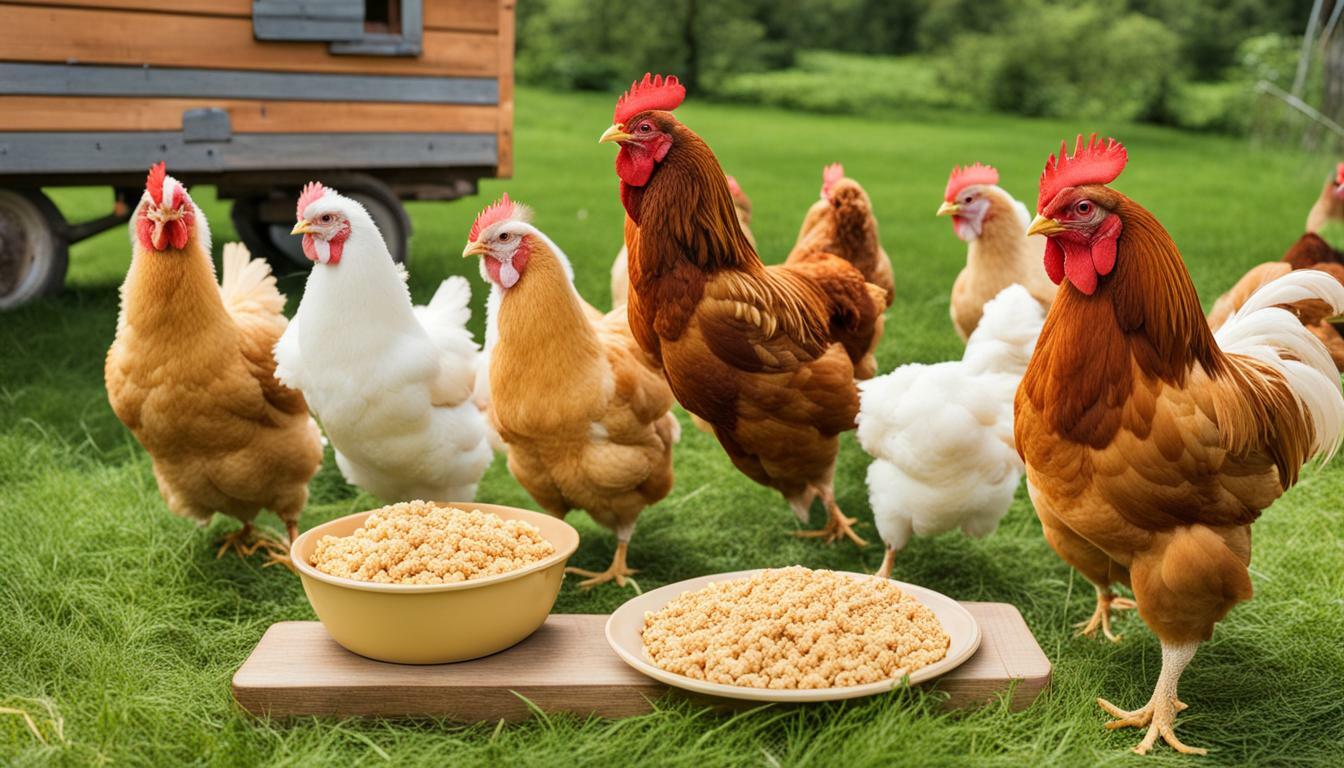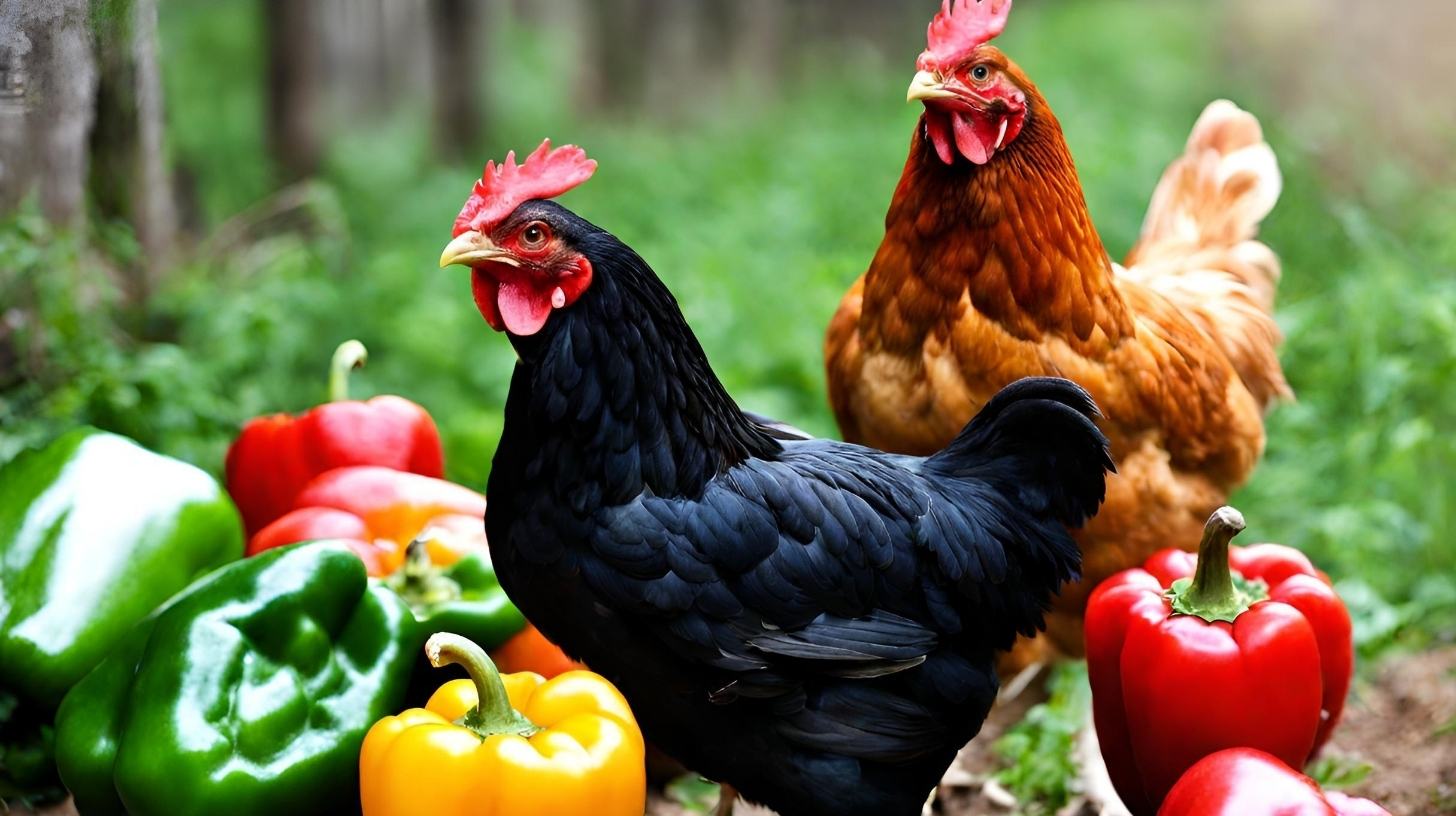Can Chickens Eat Pecans? Find Out the Nutty Truth Here!

Table of content:
- Are Pecans Safe for Chickens?
- How Many Pecans Can Chickens Eat?
- Can Chickens Eat Pecan Shells?
- Benefits of Feeding Pecans to Chickens
- Do Pecans Affect Egg Taste?
- Feeding Pecans to Chickens: Tips
- Alternatives to Pecans
- Are Chickens Attracted to Pecans?
- Are Raw or Roasted Pecans Better?
- Pecans For Chickens: Final Thoughts
Pecans are a tasty nut that can be a healthy treat for chickens in moderation. As backyard chicken keepers, it’s important we understand what human foods are safe for chickens to eat. In this article, we’ll dive into the details of feeding pecans to chickens.
Are Pecans Safe for Chickens?
Pecans are safe for chickens to eat. Pecans contain healthy fats, protein, fiber, and other key vitamins and minerals that can benefit chicken health.
A few nutritional highlights:
- High in healthy monounsaturated fats
- Good source of protein
- Provide fiber, manganese, magnesium, phosphorus, zinc, copper, and thiamine
Pecans are not toxic to chickens and do not contain substances that can harm them. They are all-natural and chemical-free.
However, there are some things to keep in mind when feeding pecans to ensure chickens don’t overindulge. We’ll cover pecans dosage and preparation next.
How Many Pecans Can Chickens Eat?
When giving treats like pecans, moderation is key. Chickens should only have a few pecans at a time, around 1-2 per chicken daily.
Too many pecans could lead to weight gain or digestive issues. Some key tips:
- Feed pecans in small quantities – a few per chicken per day
- Chop or break down large pecan pieces for easier eating
- Avoid allowing chickens to binge eat a bowl full of pecans
Monitor your chickens after feeding pecans. Reduce the amount if you notice any signs of diarrhea, upset stomach, or other digestive problems.
Can Chickens Eat Pecan Shells?
Chickens can eat small amounts of crushed pecan shells along with the nut meat. The shells provide extra fiber and calcium.
However, large, sharp pieces of pecan shell should be avoided as they are difficult to digest and could possibly cause internal cuts or obstructions.
If feeding shells, be sure to crush them into smaller bits first. You can use a rolling pin or just crush them between two spoons. This makes them safer and easier to digest.
Benefits of Feeding Pecans to Chickens
In moderation, pecans offer a variety of health benefits:
Protein – Pecans offer a boost of high-quality plant-based protein to complement protein from grains. This ensures chickens get all essential amino acids.
Fiber – Both the pecan meat and shells provide insoluble fiber that promotes good digestion and gut health.
Magnesium – Pecans provide magnesium which aids bone health, muscle function, and enzyme production in chickens.
As you can see, when fed properly, pecans make nutritious supplemental food for backyard chickens. The nutrients support overall health.
Do Pecans Affect Egg Taste?
Many chicken owners enjoy having fresh eggs from their backyard flock. You may wonder if feeding pecans will alter the flavor of the eggs.
Research shows that small amounts of pecans fed to chickens do not noticeably affect egg taste or quality. The pecan flavor does not seem to transfer to eggs.
Even foods like garlic or onions that we can taste strongly only create subtle flavor changes in eggs when fed to chickens.
Of course, every flock is different. Monitor your chickens and eggs after feeding pecans. Adjust their diet if you notice any undesirable flavor changes.
Feeding Pecans to Chickens: Tips
Here are some tips for successfully feeding pecans:
- Introduce pecans slowly/gradually to get chickens accustomed to them
- Chop or break pecans into bite-sized pieces
- Offer just a few per chicken, 1-2 times per week maximum
- Provide as an occasional treat, not a daily food
- Mix with their regular feed for easier consumption
- Avoid allowing chickens to eat excess; remove uneaten pecans
- Monitor for weight gain or digestive issues
- Discontinue use if any chicken has an adverse reaction
Following these tips will maximize the benefits while minimizing risks when feeding this nutritious treat. Chickens can enjoy pecans as part of a balanced diet.
Alternatives to Pecans
Pecans are not the only nutritious nut for chickens. Some other healthy alternatives include:
Almonds – High in vitamin E, manganese, and magnesium. But limit intake due to hidden toxicity.
Walnuts – Provides omega-3s but can easily spoil so feed immediately.
Peanuts – A legume high in protein, biotin, and folate. Can help deter pests.
Pumpkin seeds – Rich in zinc, iron, magnesium, and antioxidants.
Sunflower seeds – Good source of protein, amino acids, B vitamins, and healthy fats.
Flax seeds – High in omega-3s and lutein for eggs. Grind before feeding.
Squash seeds – Similar nutrition to pumpkin seeds. Scoop out of garden squash.
Nuts and seeds provide variety to delight your flock. Rotate different types to provide a spectrum of nutrients.
Are Chickens Attracted to Pecans?
Chickens are naturally attracted to nuts like pecans. In the wild, chickens forage for seeds and nuts. The high fat and protein content make nuts desirable.
Chickens use their beaks to crack open pecans and seem to enjoy the process. It’s like a fun edible puzzle!
The rich, buttery flavor of pecans is irresistible. Chickens will eagerly devour pecans if you let them.
Of course, anything in excess can turn into an unhealthy addiction. That’s why it’s key to offer pecans in moderation as an occasional treat.
Watching chickens enthusiastically peel open and crunch on pecans can be entertaining. But don’t let the enjoyment lead to overconsumption. A few here and there will delight both you and your flock.
Are Raw or Roasted Pecans Better?
Raw pecans are the best choice for chickens. Raw nuts retain more of their natural nutritional value and enzymes.
Roasting pecans requires cooking them in hot oil and salt, neither of which is good for chickens. The high temperatures degrade vitamins.
The only exception would be very mildly roasted pecans. These are warmed at low temperatures just long enough to enhance the flavor.
Light roasting doesn’t significantly impact the nutrients. It makes the pecans crisper and brings out more sweetness which chickens may find more appealing.
Just don’t feed chickens heavily salted or fried pecans. Stick to raw or mildly dry roasted pecans minimally processed.
Pecans For Chickens: Final Thoughts
In summary, chickens can safely eat and benefit from pecans in moderation. A few pecans here and there act as a healthy treat. They provide protein, healthy fats, fiber, and key minerals.
Just be sure not to overfeed. Stick to 1-2 pecans max per chicken per day. Fully supervise chickens when feeding to prevent binge eating.
Chop or crush pecans to make them easier and safer to eat. Monitor chickens for any signs of digestive upset or other adverse reactions.
Rotate pecans with other nuts and seeds to provide variety. Walnuts, almonds, peanuts, and sunflower seeds also deliver nutrition and enjoyment.
Feeding shelled nuts can be a fun way to bond with your flock. Chickens naturally enjoy foraging for tasty treats like pecans. Offer them as part of a balanced diet to nourish your chickens and keep their lives enriched.
Welcome. I’m Adreena Shanum, the proud owner of this website, and I am incredibly passionate about animals, especially poultry. I founded adreenapets.com as a labor of love, stemming from my desire to share my knowledge and experiences with poultry enthusiasts worldwide.




